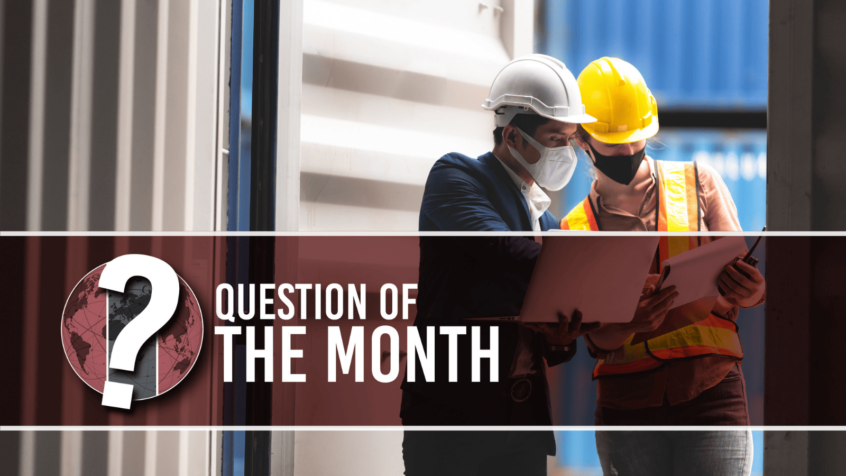Customs Q&A of the Month:
With Licensed Customs Brokerage, Jessica Parks
Uyghur Forced Labor Prevention Act: What you should know
U.S. Customs and Border Protection has put the UFLPA in place which specifically bans the import of goods resulting from forced labor in China – specifically in the Xinjiang area of China. In 2017, the Chinese government, in an act of Genocide as described by several foreign governments around the world, detained more than a million Uyghur people who are predominately Turkic-speaking people of the Muslim faith. During the time of detention, many Uyghur people were forced to work in factories to produce goods to aid the Chinese economy. This increase in forced labor prompted the US government to create this Act.
What is changing?
On March 18th, 2023 all users that submit transmissions (US Customs entries, ISF submissions, etc.) in ACE will be required to provide the Chinese zip code with a Chinese manufacturer’s information. Prior to this, the zip code was not a requirement. Further, the data entered in these transmissions will trigger a warning message when a zip code in the Xinjiang Uyghur Autonomous Region (XUAR) is used.
What does this mean for my imports of merchandise made in China?
If cargo is suspected to have been manufactured in whole or in part with forced labor, Customs, and Border Protection will detain the cargo for inspection and provide a detention notice to the importer. Once in Customs’ custody, the importer will have the opportunity to provide sufficient evidence that their goods are not subject to seizure under the UFLPA. For more information on ‘sufficient evidence’ please refer to the guide linked below.
What can I do?
Customs and Border Protection have worked to shift more responsibility and accountability to the companies that import into the US to be mindful of every step in their supply chain. Importers should be carefully vetting their suppliers and manufacturers, not only in China, to ensure that at no point in the supply chain is forced labor present. Additionally, if your goods are produced in whole or in part in the XUAR region and not made with forced labor; it is crucial to collect and retain documentation of the entire process to provide to Customs and Border Protection upon request.
More guidance on this issue can be found here!
Any questions? Email one of our Licensed Customs Brokers at [email protected]

